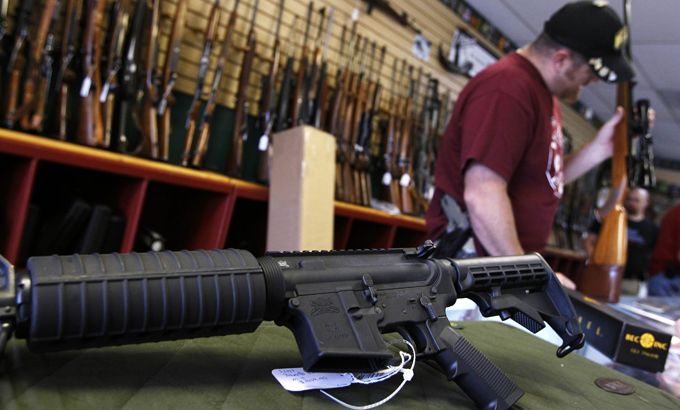UN chief makes plea on arms treaty
Ban Ki-moon urges countries to “bridge their differences” as deadline looms for global arms treaty.

Ban Ki-moon, the UN secretary-general, has appealed to countries to “show flexibility” and make progress in the negotiations of the UN treaty to regulate the multi-billion dollar global arms trade.
The UN chief urged countries to “work in good faith towards bridging their differences” ahead of Friday’s deadline for a draft of the treaty to control arms.
The secretary-general said: “We owe it to all the innocent civilians who have fallen victim to armed conflict and violence.”
A revised draft of the treaty has raised hopes from supporters and the British government, which has been the leading proponent, that a historic agreement could be reached by Friday’s deadline for action.
The draft, circulated late on Thursday, closed several loopholes in the original text, though the Washington-based Arms Control Association said further improvements are still needed to strengthen measures against illicit arms transfers.
A spokesman for Britain’s UN Mission, speaking anonymously because he was not authorised to speak publicly, said the new text is “a substantial improvement” and “an historic agreement that effectively regulates the international trade in conventional arms is now very close.”
The estimated $60bn international arms trade is unregulated, though countries including the US have their own rules on exports.
The UN General Assembly voted in December 2006 to work toward a treaty regulating the growing arms trade, with the US casting a “no” vote. In October 2009, the Obama administration reversed the Bush administration’s position and supported an assembly resolution to hold four preparatory meetings and a four-week UN conference in 2012 to draft an arms trade treaty.
Regulated arms
In considering whether to authorise the export of arms, the draft says a country must evaluate whether the weapon would be used to violate international human rights or humanitarian laws or be used by terrorists or organised crime – and if there is “a substantial risk” the treaty would prohibit the transfer.
Opponents in the US, especially the powerful National Rifle Association, have portrayed the treaty as a surrender of gun ownership rights enshrined in the US Constitution. The issue of gun control, always politically explosive one for American politicians, has re-emerged since last week’s shooting at a Colorado cinema killed 12 people
In Washington, a bipartisan group of 51 senators threatened to oppose the treaty if it falls short in protecting Americans’ constitutional right to bear arms.
In a letter to President Barack Obama and Secretary of State Hillary Rodham Clinton, the senators expressed serious concerns with the draft treaty that has circulated at the United Nations, saying that it signals an expansion of gun control that would be unacceptable.
Daryl Kimball, executive director of the Arms Control Association, said that the new text would potentially allow states to exclude arms transfers that are not commercial sales, such as gifts, from review under the terms of the treaty and does not include a broad enough list of weapons to be covered.
With the conference scheduled to end on Friday, negotiators have been trying to come up with a text that satisfies advocates of a strong treaty with tough regulations and countries that appear to have little interest in a treaty including Syria, North Korea, Iran, Egypt and Algeria.